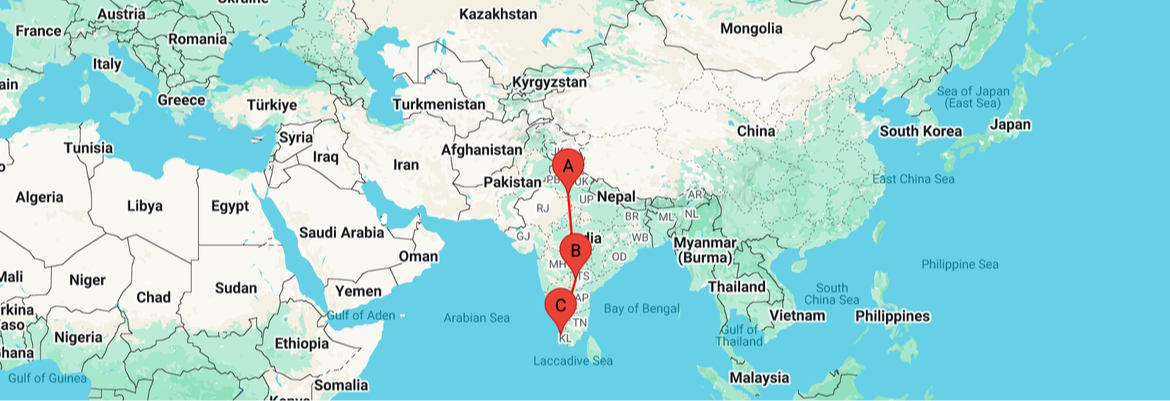Delhi
After breakfast, join a friend of Sodha Travel for a rickshaw tour in Chandni Chowk. This is not your standard guidebook tour! Witness the architectural marvels, the multicolored facades, beautifully decorated shops, spice markets, and the fragrances emanating from the potpourri of eateries that line the historical alleys.
Mughal Emperor Shah Jahan (1592-1666) built the walled city of Delhi on the banks of holy River Yamuna. It had a magnificent palace known as Red Fort, impressive mansions, enchanting bazaars, elegant shrines, royal gardens and fountains at every corner to romance ones' senses. The Emperor’s beloved daughter Jahanara designed a major street called Chandni Chowk in front of Red Fort, with a canal running down the center and pools at major intersections reflecting the moonlight. During the British regime, the street underwent major changes and since then this area has witnessed some of the most important events in Indian history. Today these splendid ruins and tales of valor are a testimony of the evolution of the times. Chandni Chowk truly reflects the national unity, secularism and diversity of India.
While on the tour, stop at Khari Baoli, Asia’s largest wholesale spice market operating since the 17th century. Here you will have the opportunity to view the whole process: from the loading, carrying and unloading of the huge sacks of produce, to watching the busy shop keepers bargain with customers. You’ll also meet a spice seller to hear him talk about how he mixes the spices for retailing. The street is congested with shops on both sides selling spices, nuts, and herbs.
From here, make a quick visit to some of Old Delhi’s best known eateries including the Paranthe Wali Gali (lane of parathas) which has been in operation at Chandni Chowk since the 1870s. Visit Giani’s Kulfi Faluda, Natraj Dahi Bhalla, Akbar Pakwaan and Chole Kulche, as well as many hidden gems only known to locals.
Drive through New Delhi, passing India Gate, President’s Palace, Parliament, and other government buildings built in the first quarter of the 20th century by two famous English architects, Sir Herbert Baker and Sir Edwin Lutyens.
Your welcome dinner will be at the award-winning Indian Accent restaurant. Indian food has been seeing a trend towards modernity and chefs are exploring options of creating modern dishes with indigenous products. Tonight, experience a special meal where celebrity chef Manish Mehrotra will rustle up an array of dishes that are his own interpretations of modern Indian food that marries global ingredients and techniques with Indian traditions. Overnight in Delhi.





.png)
